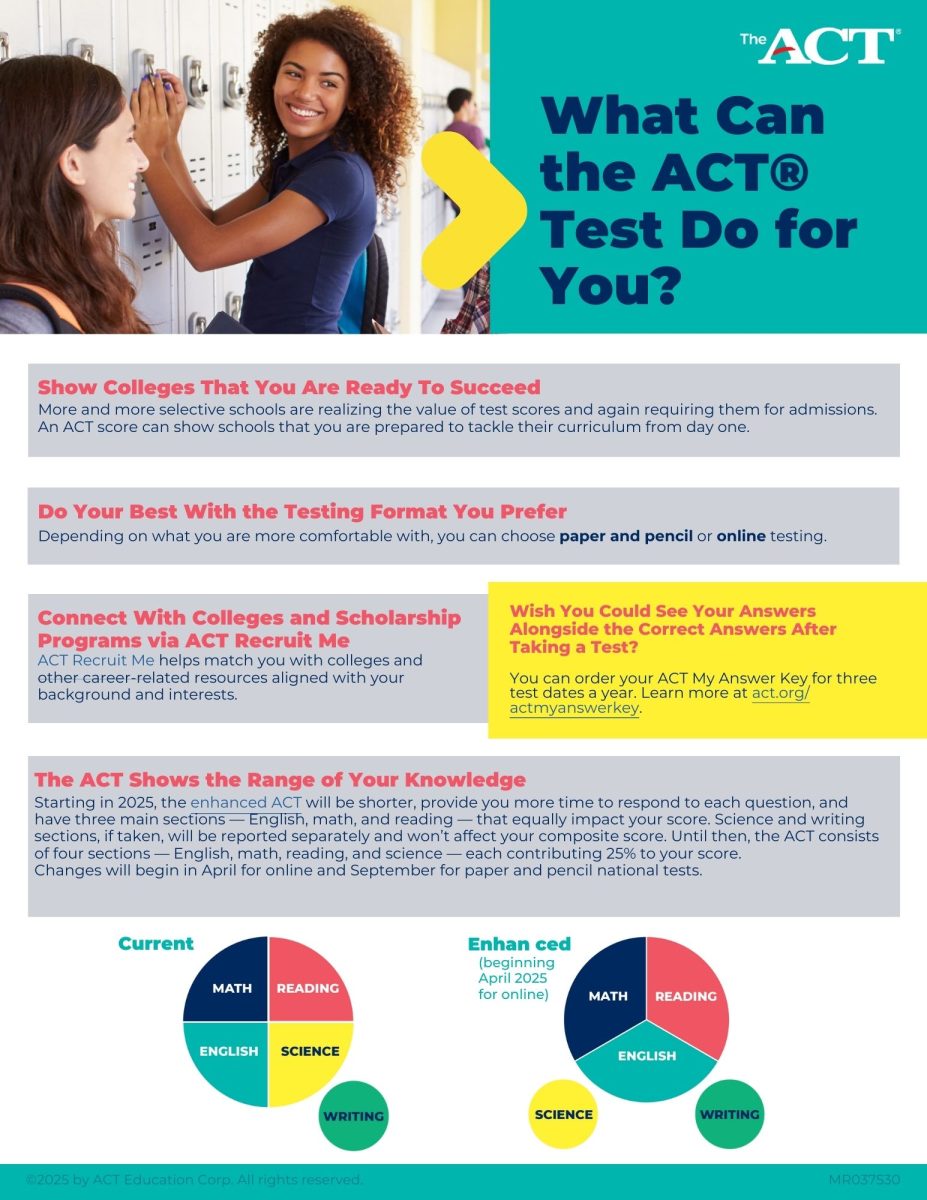As we get closer and closer to warmer weather, spring break and the end of the school year, we also get closer to the testing season. This includes finals, AP exams and of course the ACT. This test is known to be very long and stressful for some, being three hours long, consisting of 215 questions and split into four different sections. Most of Oakville’s juniors and sophomores are preparing to take the ACT and the PreACT this April.
“Preparing for the test can be stressful, especially when you get a big textbook of tactics for studying, but you can really break the strategies down,” Abby Hasty (11) said.
Along with textbooks, there are several methods students can use to study for these tests. There are videos with lessons for specific sections and topics that can be found online, as well as practice questions and exams. Some students even find extra help through tutors or teachers.
“…I needed another person and I eventually found another tutor for it…” Jonathan Selph (12). “Usually it’s just question after question, figuring out what I do know, what I don’t know and how to fix it.”
Many students take this test very seriously even though a lot of colleges don’t require a score to be submitted when applying anymore. It can still be very beneficial to submit test scores, though, because it allows colleges to see how students would perform in classes, which allowd them to see if applicants would be a good fit for the university.
“Maybe if the school has a high ACT requirement, and you come in with a lower score, you set yourself up for a major challenge,” ACT Prep (math) teacher John Souris said.
Some schools also offer scholarships, and even direct admission, for students who receive a certain score on the test. This is another reason many students strive to perform well on the ACT, as it can really help to bring the cost of tuition down.
“…It has helped quite a lot now since there is less of an ACT requirement from many universities… I was able to cut tuition in half,” Selph said.
Outside of the yearly testing that takes place in April, there are ACT tests monthly at different local high schools that students are constantly preparing for. It can be hard for some to balance studying for an extra test while also completing and focusing on their classwork, so Oakville added a new class called ACT Prep.
“One of the main things we do is we do practice tests. We try to help the students increase their math, reading and critical thinking endurance…some strategies with the types of questions, and we’ll do timed quizzes,” Souris said.
The time for each section is very limited to encourage students to work on their time management skills, which should be used a lot in college and future careers. Some teachers advise students to take a watch that doesn’t make any noise in order to monitor the time closely, but many students would like to see more time added to the test.
“I would give more time for the questions…” Hasty said. “Sometimes people can’t help but need to go a bit slower.”
The ACT is a very traditional test that has been around for nearly 70 years but could possibly be making some changes in the future. Digital testing has been increasing more and more, which is causing standardized tests to make the same shift.
“There is discussion of making it digital. AP exams, and they’re the same company that does the SAT, and ACT are moving that way also. Part of that reason is for efficiency, and also to cut down on academic dishonesty and cheating,” Souris said.
These tests are taken very seriously with grading and cheating because they are very effective to sort students for their potential success in college. While preparing for the test and even taking it can be very stressful for students, it can be very beneficial in helping students prepare and pay for college.
“The most rewarding part of the test,” Hasty said, “is getting your score back and seeing how your hard work paid off.”







